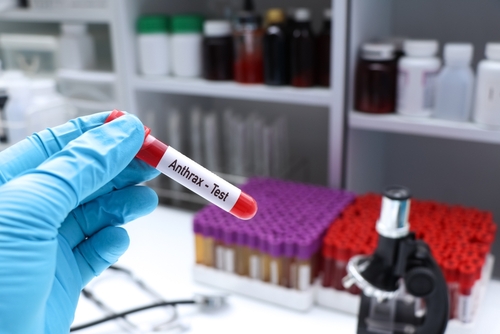
The United States government has recently entered into a significant contract, valued at $75 million, for the procurement of anthrax vaccines. This move underscores the importance of anthrax vaccination in certain sectors and raises questions about the vaccine’s history, effectiveness, and the controversies surrounding it.
Anthrax, caused by the bacterium Bacillus anthracis, is a serious infectious disease that can affect both animals and humans. While uncommon in humans, it can be contracted through contact with infected animals or contaminated animal products. The risk of inhalation anthrax, which is the deadliest form, is a primary concern, especially for military personnel, laboratory workers, and veterinarians who may handle infected animals.
Another interestingly timed, suspicious death in the academic scientific research community on anthrax. Was his work used in the military’s anthrax vaccines? https://t.co/4e7A5AYadd
— Norma Moura (@NormaMoura5) December 2, 2023
The anthrax vaccine aims to protect against this disease, requiring a series of five doses over 18 months to build up immunity. The Centers for Disease Control and Prevention (CDC) recommends vaccination for specific groups between 18 to 65 years old, including those working in high-risk environments. The effectiveness of the vaccine is approximately 93% for individuals who complete the primary series and maintain booster vaccinations.
However, the anthrax vaccine has been mired in controversy. Concerns have been raised regarding the addition of squalene to some batches, which was intended to enhance the vaccine’s effectiveness but led to immune system overreactions in some recipients. This issue contributed to lawsuits filed by military personnel who claimed the vaccine was experimental. Additionally, the vaccine’s production has faced scrutiny for being substandard, and changes made to its composition without proper evaluation have been criticized.
Anthrax testing. New vaccine out.
U.S. Government Inks $75 Million Contract for Recently Approved Anthrax Vaccines By Anthony Scott Dec. 3, 2023 7:00 am
George Webb https://t.co/emVIVUJodi
— Present (@jcf527) December 3, 2023
Despite these concerns, the anthrax vaccine remains the only FDA-licensed vaccine for anthrax in the United States. BioThrax® is administered to those at increased risk of exposure, with a booster dose recommended annually for ongoing protection. It’s important to note that the vaccine’s use for inhalation anthrax is considered “off-label,” meaning it is used for a purpose not explicitly approved by the FDA.
The recent $75 million contract for anthrax vaccines indicates a continued commitment to biodefense and the protection of individuals at risk of exposure to anthrax. While the vaccine is not typically available at healthcare professionals’ offices, it can be obtained through employers who offer it due to job responsibilities or through state health departments for those recommended to receive it.
Side effects from the anthrax vaccine are generally mild and include reactions at the injection site, muscle aches, headaches, and fatigue. Serious adverse reactions occur in about 1% of recipients. As with any medical intervention, it is crucial for individuals to weigh the benefits against the potential risks.
In conclusion, the anthrax vaccine plays a critical role in protecting certain populations from a potentially deadly disease. The U.S. government’s recent investment in the vaccine highlights its significance in public health and biodefense strategies. As research continues and new second-generation vaccines are developed, it is hoped that future iterations will offer enhanced safety and efficacy, reducing the concerns that have historically accompanied this vaccine.










